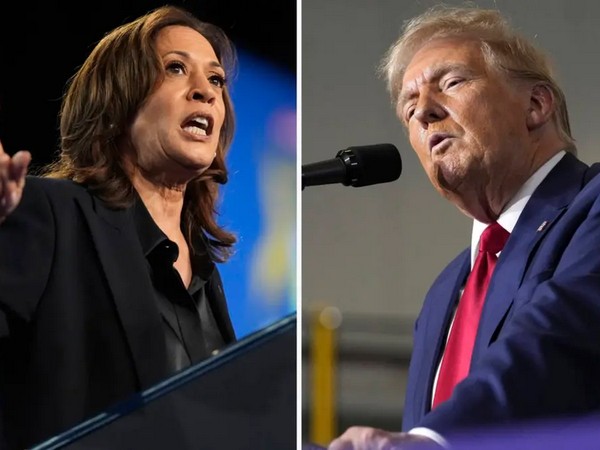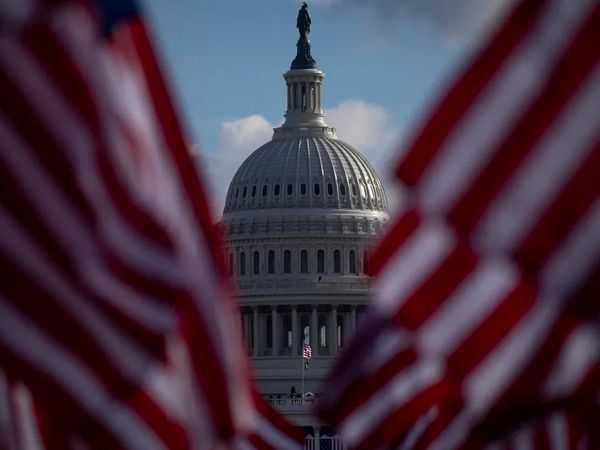Nearly 35 million Americans have already participated in early voting, and the countdown to the presidential election is in its final stages. After a strong performance by Kamala Harris, who has received significant endorsements—including the widely discussed endorsement from Taylor Swift—the overall climate of the U.S. campaign appears to be shifting in Donald Trump's favour. Polls indicate that Trump and Harris are "neck and neck," making it difficult to determine a clear winner. We discussed this situation with Duccio Basosi, a professor of History of International Relations at Ca' Foscari.
The economy and immigration are priority issues for American citizens as they head to the polls. Are these truly the key points on which the two opponents challenge each other, and what are their positions?
I would say no, or rather, it depends. Polls indicate that the electorate is roughly split in half and incredibly polarised. This division is reflected in the differing priorities of Democrats and Republicans. Specifically, polls show that those planning to vote for Donald Trump tend to focus on immigration—seen as a problem needing control—and the economy, which they perceive as weak. Conversely, those who intend to vote for Kamala Harris prioritise women's right to abortion, which has been severely undermined by a recent Supreme Court ruling, and the protection of the constitutional system of checks and balances among powers and institutions, which they view as at risk in the event of a Trump victory.
As a side note, if we define "strength of the economy" as having relatively low unemployment and relatively low inflation—criteria presumably shared by both Harris and Trump—the US economy has been in quite good shape for almost two years. Nonetheless, a portion of the electorate appears not to recognise this reality. Overall, it seems as though two different electorates are engaged in two different political games.
Trump's promise to defend the country's culture in 2016 played a significant role in his victory. Is the fear of social change still a central issue?
It's hard to argue that Trump in 2016 promised to defend the country’s “culture.” His campaign seemed to appeal to those who supported white ethnonationalism, who were against having a woman president, and who felt threatened by immigration and the influx of goods from China. Racism, machismo, and xenophobia have always played a role in US political discourse, but there’s no reason to believe these traits truly represent US culture, especially in recent decades. Culture is always a battleground, and the dominant ideas at any given time arise from ongoing conflicts. However, it would be misleading to assume that US citizens in 2016 inherently identified with racist, misogynistic, and xenophobic views. It's important to remember that the previous two elections were won by Barack Obama, and in 2016, Hillary Clinton won the popular vote with a message that generally promoted openness to the world. While Clinton's message may have faltered later in 2016 or she may not have been the right candidate for swing states, that is a different issue altogether.
Is ethnicity one of the driving factors of the American electorate? If so, how is it affecting the vote?
Ethnicity, often referred to as race in the U.S., has traditionally played a significant role in American elections. Since the 1960s, the Democratic Party has received substantial support from African American and Hispanic voters, the two primary “non-white” ethnic groups identified in U.S. census data. Meanwhile, since the 1970s, the Republican Party has maintained a majority of the white vote, though not an overwhelming one.
According to polls for the 2024 elections, these trends still hold true. However, Kamala Harris does not appear to attract the same level of support from African American and Hispanic voters as previous Democratic candidates. Recent analyses indicate that the real divide in the upcoming elections may be found at the intersection of gender and education level. For instance, a study reported in the New York Times reveals that Harris leads by 9 percentage points among women, while Trump holds an 8-point lead among men. Additionally, Harris is ahead by 19 points among university-educated individuals, whereas Trump leads by 10 points among those without a degree. When combining these data points, Harris is leading by 27 points among women with degrees, while Trump has a 16-point advantage among men without a university education.
What scenarios could emerge for Europe, particularly Italy, depending on whether Trump or Harris wins?
According to the statements made, Harris would be a candidate representing continuity, as she emphasises the significance of U.S. leadership in the world and the importance of U.S. alliances with other countries that share a liberal democratic tradition. In terms of Europe, this generally suggests a renewed commitment to NATO and, at least in the short term, the continuation of current military support for Ukraine, along with a rejection of any form of dialogue with Russia. However, how this approach would be implemented in practice is uncertain and would depend on numerous unpredictable variables. Trump's approach to foreign policy, on the other hand, signifies a radical departure from the United States' traditional role of global leadership, a pretence he considers wasteful and unnecessary. His primary focus is on economic competition with China, suggesting a potential easing of relations with the European Union. He has claimed he could end the war in Ukraine "in less than 24 hours," attributing this to his good personal relationship with Vladimir Putin and his vow to halt the flow of U.S. weaponry to Ukrainian forces. However, if his first term as president serves as a model for what could come next, Trump's foreign policy is largely erratic in nature, marked by contradictory tweets and unpredictable moves. This unpredictability caused significant stress and confusion among foreign governments. Nevertheless, it cannot be said that the role of the United States in the world changed significantly during his four years in office.
How significant is international politics in this election, particularly regarding the candidates' positions on China and the conflicts between Russia and Ukraine, and between Israel and Palestine?
The latest New York Times/Siena College poll, published on 25 October, indicates that foreign policy is not a primary concern for most voters—only 3% of respondents identified it as their first priority. This does not mean that foreign policy is unimportant; rather, it has been overshadowed by other pressing issues. For instance, when Trump claims he will strengthen the economy through high trade tariffs, he is essentially addressing foreign policy concerns. Similarly, when Harris criticises Trump as a threat to democracy due to his ties with Putin, she is also engaging with foreign policy. Regarding specific areas of crisis, less than 0.5% of respondents view the war between Russia and Ukraine as their top concern. About 1% express worry about an issue ambiguously labelled ‘Middle East/Israel/Palestinians.' Notably, Trump and Harris exhibit minimal divergence regarding support for Israeli policies, regardless of their brutality.
Who is more afraid: the Democrats of a Trump victory or the Republicans of a Harris victory?
I think the Democrats are more afraid. The Trumpian electorate seems to be moved by a messianic faith in its leader and despises the Democrats and their policies, but does not seem to express ‘fear’ in the event of a Harris victory. The fact that ‘democracy’ is at stake for the Democrats, on the other hand, suggests that the latter are very afraid of the consequences of their opponent's victory. To the extent that Trump has promised that he will have the courts prosecute his opponents, described as an ‘enemy within’, this fear does not appear unfounded.










